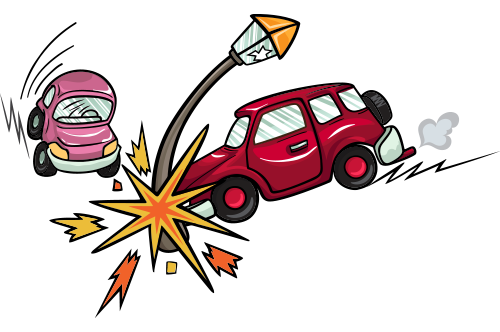
Classic cars tend to be driven very differently to a daily runaround - usually with extra care, less speed and more love. You rarely see a Morris Minor on the school run or at the supermarket so the majority of insurers pass on savings accordingly.
This guide explains the basics of classic car insurance and what to watch out for when buying. If you're looking for standard car insurance instead check our Cheap Car Insurance guide for more.
Classic car insurance: Your six need-to-knows

If you're seeking cover for a classic car, it's usually - but not always, depending on whether your passion for vintage motors starts at a young age! - the case you're an older driver with decades of motoring experience, already own another car and are familiar with how car insurance works.
We go into this in great detail in our main guide. Here we focus on how to find the best classic car insurance policy that suits you and your vehicle.
What counts as a classic car?
Think of a classic car and you might think of dreamy old motors: an interwar 1926 Standard V, a Daimler DB18 Drophead Coupe (the type used by Winston Churchill to campaign in the 1940s), a 1950s Austin-Healey or even a 1970s Lotus Esprit.
Ask an insurer instead what a classic car is and, for the purposes of your insurance, it'll tell you something rather different - and bizarrely, it's not all about age...
Insurers define a classic car according to how it's used and kept - generally speaking, it needs to be a combination of most of the following: more than 15 years old, be driven less than 5,000 miles a year, kept in mint condition and used as a second car.
This means it could apply to a trusty old Ford Fiesta or Peugeot 205 GTI, older Land Rover or ageing Renault 5 GT Turbo you keep in a garage for nostalgia.
To be eligible for cut-price premiums, you must meet these general conditions (which can vary slightly between insurers):
- Your classic car isn't your only car - you need to have another vehicle you use as a runaround
- You notch up a very low annual mileage (usually between 2,000 and 5,000 miles)
- The vehicle is stored in a garage, on a drive or in a specialist lock-up
- You must usually be 25 or older
This means you can't usually simply own an older car - a 20-year old Ford Sierra estate, say - which you use as your everyday car and try to insure cheaply as a classic car instead of an ordinary motor in a bid to save money.
Classic car insurance is usually much cheaper than ordinary car cover
Buying insurance for a classic car is very different to that for ordinary vehicles. Often, classic cars of any vintage aren't driven like those for your daily runaround, the commute, popping to the shops or school run.
As insurers reckon classic car drivers are more careful, and as the cars are hardly driven, costs tend to be lower
The nature of a classic car in insurers' eyes - often kept in pristine condition, driven only for a few days a year or in good weather, and kept in a safe location to protect its value - means its cost to insure is usually much lower than that for regular insurance.
This is because classic car owners tend to take much greater care of their cars and the way they're driven, so insurers reward their lower risk with smaller premiums. Our research shows it can often be less than half the price.
Quick questions
Do annual premiums for classic cars rise by the same amount as for regular cars?
While you should definitely review your policy at renewal, there is nothing like the same price volatility experienced by ordinary drivers.
So while auto-renewing remains a no-no, and you should always double-check if you can get it cheaper, the upwards price pressure on classic cars is much less.
Do no-claims bonuses give me the same sort of discount for ordinary motor policies?
Years of blemish-free driving will of course stand you in good stead when applying for classic car insurance.
But since most classic cars are owned as second vehicles - and not used daily - the no-claims bonus discount doesn't usually apply.
A specialist policy covers motorists for all the usual risks plus a few extra

Classic car insurance covers you for exactly the same types of risk as ordinary car insurance - if your car is stolen, damaged in a smash or suffers a prang in a car park, it should pay out.
And like ordinary policies, insurers will weigh up how you drive your vintage model, modifications (see below) and desirability among collectors as well as its age and condition.
Although you can generally choose to buy the same type of cover as ordinary motorists - comprehensive, third party fire and theft or third-party only - be aware that some specialist providers may only offer comprehensive cover as a condition of buying (they argue there isn't much price difference between the three, so only offer one option).
The extras you can get...
Cover while it's being done up
Many people restore their classic which can take many months, or even years. So you can buy insurance to keep it covered during this period.
Displaying the car at a vintage car fair or show
Often included as an extra, you'll be covered for prangs and accidents as well as public liability if you knock into something (or someone) while your vehicle is on display.
Racing on track days
If you've got a classic car equipped for racing - whether it's just a gentle drive in a track parade or something slightly speedier on a track day where time trials let drivers put an older car through its paces - then make sure your policy covers you for any extra dents or accidents.
You'll pay a slightly higher premium according to how often you race or the number of events you take part in.
Going abroad
Most policies will let you spend up to 90 days a year overseas.
Cut your insurance cost by up to 25% by joining a car club

Many classic car owners would not be shy about calling themselves an enthusiast - after all, love of anything usually involves a degree of passion!
And while joining a classic car club for your model brings its own social perks such as meets and days out, it usually brings financial benefits too.
Depending on the club, and for an annual fee usually ranging between £20 and £45, you can qualify for all sorts of perks including discounts with suppliers for spare parts as well as special offers on annual car services.
But the biggest savings from being a member can come on the cost of your insurance. Membership can help knock up to 25% off your insurance, eg, £50 off a £200 policy - in fact, the discount on the insurance itself can often more than pay for the cost of annual membership.
Many insurers see joining a car club as further proof of commitment to careful driving - and charge you less as a reward
Not all brokers or insurers will offer it, and the size of the discount will depend on other variables such as how often you drive, the age of the car etc. But if you're going to join a club anyway for the other benefits, then cheaper insurance will be a huge bonus.
You can find a list of clubs here and if your car's not here, type it into Google where you'll quickly see if there's a club.
If your car is stolen or written off, you'll get an 'agreed price' payout rather than its market value

Drive a modern car and if it's stolen or written off in a smash, getting an insurance payout is often simple as most new cars regularly bought and sold in the UK are easy to value - and insurers know much it'll cost to replace.
The rules are slightly different if you own a classic car. With older models - and particularly those that are much in demand or have been extensively modified - knowing how much the car is actually worth is not easy to work out.
The value of the vehicle can swing hugely, for example if collectors (especially from overseas) develop an interest in a given model. So when you sign up to buy the insurance, insurers tend to ask you to settle on an 'agreed valuation'. This involves you agreeing to the fixed size of any payout if disaster strikes MINUS any policy excess.
How to work out what your car's worth
When you take out an agreed value policy, you don't usually get to just tell your insurer what you think your vehicle is worth and vice versa – you'll need some sort of official estimate of its worth.
How to value a car
If you join a classic car club, many have valuers with extensive knowledge of your type of car and model. Their specialists will be able to give you a document, usually bearing the club logo, as evidence of market value.
However, in most cases, an insurer will want a valuation certificate from an independent vehicle valuation expert. This means you'll likely need pay for a vehicle inspection and valuation which can be anywhere from £50 to £150 - you'll need to do this once per insurer assuming the valuation doesn't change much, so if you switch you'll need to do it again. You can try the likes of Julian Shoolheifer Classic Car Valuations or J.P.Morriss.
Because car prices fluctuate so much, if your classic motor moves up or down a lot, you'll need to have the valuation reviewed regularly - at least once a year, which can cost you.
Anything else?
You might also find insurers ask for a list of photos of the vehicle and, if you've had a lot of restorative work done, ask for bills showing payment for recent work done as supporting evidence of the vehicle's value.
Keep your car for parts if the vehicle is a write-off
If your beloved classic is badly smashed, its damage may be so bad it costs the insurer more to cover the cost of repairs than the payout for its market value. In other words, the insurer would be left out of pocket.
When this happens, you can either accept the car's a write-off and take the payout or - particularly if you're keen on using what can be salvaged, if possible, for spare parts - buy the wreckage back off the insurer.
This can set you back thousands of pounds (depending on the model) but, if you're an avid classic car fan, you may want to keep the vehicle remnants.
If this is the case, then pick a classic car insurance policy that includes 'salvage retention' - not all do, and while many will include it for a small extra fee, plenty will include it as standard.
Modifications will push up your premiums (but not like they do for an ordinary car)
As with standard car insurance – you need to tell the insurer about any modifications whether for cosmetic, performance or safety reason. Given the age of many classic cars, many will have undergone alterations to be roadworthy. The most common include:
- Respray
- Introduction of computerised controls/dashboards
- New engine
- Improved fuel performance
- Electronic ignition
- Power steering
Each can add an extra 10% to 15% onto the premium, depending on the extent of the work and the vehicle. This is because anything which pushes up the vehicle's value needs to be taken into account, especially when it affects the cost of any payout in an incident.
For example, a high-quality respray can add £2,000-£3,000 to a car's value. However, unlike with modern cars used for daily driving where modifications are seen as higher risk by insurers, a modification is par for the course with a classic car.
Without them, many wouldn't be roadworthy - and insurers understand that they're being done not to make the car go faster but to preserve it instead. So instead of being the norm, a modification is to be expected - this allows insurers to be able to reflect this in lower premiums.
Get Our Free Money Tips Email!
For all the latest deals, guides and loopholes - join the 10m who get it. Don't miss out
How to buy classic car insurance

Normally with car insurance we suggest you use comparison sites which fire your details to dozens of insurers' and brokers' websites in seconds to find the cheapest quotes.
But here, it's unlikely they will return accurate classic car quotes as the vagaries make it difficult for them to capture it all accurately. So in the spirit of your set of wheels it's a return to an old-fashioned way of doing things...
Step 1: Use a classic car specialist broker to check prices
A number of specialist brokers offer classic car policies - as well as other unusual vehicles such as high-performance road cars, so-called American 'muscle' cars, military vehicles or old campervans. This means they all search a number of different insurers for you.
Warning: three of the four specialists below - Carole Nash, Footman James and Lancaster - charge a fee for policy renewal a year later.
This means their deal may be great for the first year but then you'll need to diarise checking up at 11 months to see how their premium measures up against rivals at the end of the year. Don't forget to factor in the cost of likely car valuation with a new insurer too if you decide to switch.
It doesn't mean your policy at renewal will always be expensive – it may even be one of the cheapest – but the issue of charging a fee for renewing a policy is not one that MoneySavingExpert.com is comfortable with.
Those listed below have been picked for breadth of cover, based on our research and reviews - and it'll be worth checking as many of the following as you can for a broad range of quotes as they don't all search the same insurers.
 Specialist broker Hagerty doesn't charge a renewal fee so tops our list of brokers to try. However, always do a comparison at year-end to ensure you get the best price. Its website also offers a useful car valuation tool to help get an idea of your car's worth.
Specialist broker Hagerty doesn't charge a renewal fee so tops our list of brokers to try. However, always do a comparison at year-end to ensure you get the best price. Its website also offers a useful car valuation tool to help get an idea of your car's worth.
 A policy with broker Carole Nash includes UK and EU breakdown including home start, as well as the option to choose your own repairer if ever needed. Its website also includes useful potted histories of some classic car makes.
A policy with broker Carole Nash includes UK and EU breakdown including home start, as well as the option to choose your own repairer if ever needed. Its website also includes useful potted histories of some classic car makes.

Footman James - part of Towergate Insurance, a large insurance broker - includes extra options for your classic motor such as 'drive to work' and 'wedding hire'.
 Specialist broker Lancaster uses a network of car clubs as well as a panel of insurers to offer quotes. Its online application process was also one of the easiest and quickest to fill in.
Specialist broker Lancaster uses a network of car clubs as well as a panel of insurers to offer quotes. Its online application process was also one of the easiest and quickest to fill in.
You could also try a general broker for belt 'n' braces
If you've time you could always try a general broker. Your best option will be to find a broker who's a member of the British Insurance Brokers' Association (and you can find a list of those in your area on its site) who'll be able to help you find the right product.
Get Our Free Money Tips Email!
For all the latest deals, guides and loopholes - join the 10m who get it. Don't miss out
Step 2: Haggle if you're at renewal
Haggling is not a must – especially if you want to try a new provider – but if you're looking to renew with your current insurer it is well worth getting on the phone to your existing insurer to negotiate.
Once you've called a number of brokers as listed above and got the overall cheapest price, pick up the phone and haggle. If your insurer can beat or match your best quote it saves the hassle of switching policy.
Step 3: Double-check policy details suit your circumstances
Although this is a message we give out when buying any type of insurance policy - always double check the policy terms - it's particularly important for classic car cover because of its nature. With all the different variables - mileage, type of use, age of car, modifications etc - your policy must be tailored to your exact requirements, so check.
How to make a claim on your classic car insurance

Claiming on your classic car insurance shouldn't be daunting and if you understand the terms and excesses on your policy you shouldn't be in for any nasty shocks. Follow these three simple steps in the event you need to claim.
-
If it's a theft, notify the police
If your classic car is stolen, you'll need to get a crime reference number to make a successful claim on a home or specialist insurance policy. Report the incident to the police as soon as you can to make sure your claim doesn't hit the skids.
-
Submit your claim as soon as possible
Contact your insurer as soon as you can to avoid any administrative hold-ups; if it's a complex claim, it may take a while to be processed, so the sooner you start, the better.
-
Keep your receipts
The loss of a classic car isn't normally queried by an insurer, especially you'll have handed over registered keeper/owner details when buying. But it'll always come in handy in any claim to be able to show proof of purchase or receipts for modifications if requested.
How to complain about your insurance provider
The insurance industry doesn't have the best customer service reputation and while a provider may be good for some, it can be hell for others. Common problems include claims either not being paid out on time or at all, unfair charges, or exclusions being hidden in the small print. It's always worth trying to call your provider first, but if not then…
Free tool if you're having a problem
 This tool helps you draft your complaint and manage it too. It's totally free, and offered by a firm called Resolver which we like so much we work with it to help people get complaints justice.
This tool helps you draft your complaint and manage it too. It's totally free, and offered by a firm called Resolver which we like so much we work with it to help people get complaints justice.
If the complaint isn't resolved, Resolver will escalate it to the free Financial Ombudsman Service.
Important: if your issue is about a voucher or incentive that was part of an MSE Blagged deal, then instead just let us know by emailing voucherhelp@moneysavingexpert.com as that's usually quicker.

